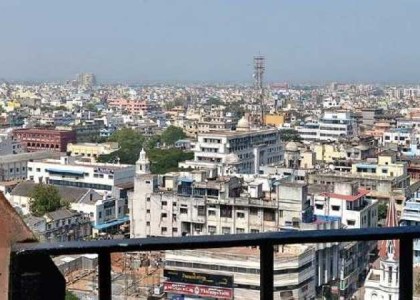Housing societies take it upon themselves to recycle
JK Rowling once said, “We are only as strong as we are united, as weak as we are divided.” The famous quote, along with other such phrases and idioms on unity, stand true in the world we live in. When people come together for or against a cause, the results are otherworldly. An excellent example of the effect is Matoshree Pearl Housing Society.
The 22-storied apartment complex in Mumbai houses 65 flats that come together to recycle and reuse the wastes from each home. Wherein the wet wastes, then, is used as manure for the 4,000 square feet terrace vegetable and ornamental garden.
The housing society’s green movement started three years ago when a collective decision was made by the management committee of Matoshree Pearl to use LED lighting instead of tube lights and CFL bulbs. A member of the group, Satish Kini shared, in an interview with The Better India, how he did not wish to stop there. Instead, he went on to find a solution for the friction between the society’s housekeeping staffs and local corporation workers by finding out the root cause—waste management. In a quest to find a way to be less dependent on the BMC (Brihanmumbai Municipal Corporation) for the disposal of garbage, Kini approached RUR Green Life—a social environment enterprise.
With RUR’s help along with support from the management committee, Kini launched a Go Green Campaign in October 2017, the aim of which was to educate the residents about segregating their kitchen wet wastes and turning them into compost. Despite the difficulties the society had to face in terms of infrastructure and implementing their Green plans, the inhabitants came together to fund the terrace garden. Utilizing RUR’s proprietary Bio-Composters and multi-level segregation of dry, recyclable, and non-recyclable wastes from each house, they have created a system that runs like a well-oiled machine.
Everyone in society has his or her part to play in the maintenance of the terrace garden. Children have the responsibility of individual patches distributed among them, and homemakers and the elderly help them with their task. To irrigate the plants effectively, the housing society utilized drip irrigation. The first phase of the terrace garden, however, was creating the manure out of the composters. Approximately, 60-70 kg of manure was produced in a month from 700-800 kg of kitchen waste. Once the compost was ready, the society started planting saplings of decorative plants. It was only later that Matoshree planted vegetables like tomatoes, cucumbers, etc.
All the hard work of the residents and housekeeping staffs, who were in charge of segregating the wastes, paid off when the society started harvesting a variety of vegetables. These veggies are, today, used by the inhabitants; saving money on groceries. However, their hard work benefits the BMC more, for they observed a reduction of 1000-1200 kg of wastes sent to the landfills around Mumbai. With other eco-friendly projects like solar energy production and sewage water treatment in the pipeline, Matoshree Pearl Housing society shows that unity can overcome any number of hurdles and achieve a greater effect.


